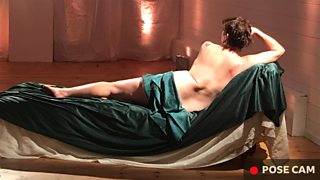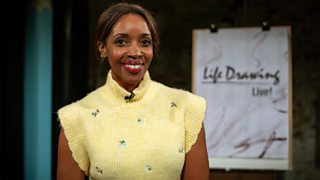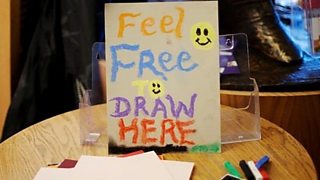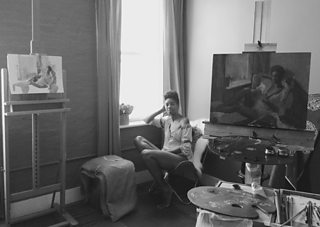Life Drawing Live! Why all artists should have naked ambition
12 September 2021
Tonight at 9pm live on 大象传媒 Two and 大象传媒 Four Joe Lycett and a band of celebrity amateur artists are taking part in a life drawing class from the stunning surroundings of Wrest Park in Bedfordshire. You can follow all the action and find out how to join in from home by going to our 大象传媒 Arts live page. Johnny Vegas, Kimberly Wyatt, Adele Roberts and David James are ready to sketch - time to look out your HB pencils and paper!
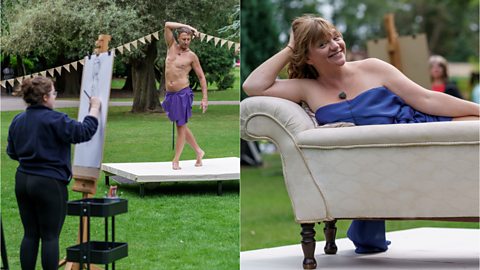
Life Drawing in the Park
Adebanji Alade gets the Birmingham public to draw models Ian Waite and Rev Kate Bottley
Adebanji Alade's top tips
If you can't wait until Sunday to get started Adebanji Alade has some great advice on the fundamentals of life drawing.
Position and Proportion
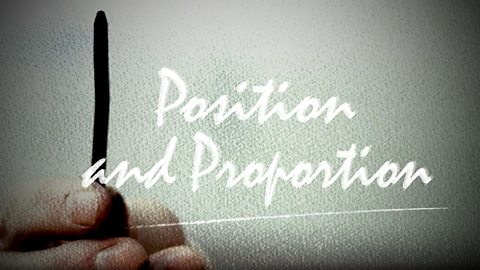
Position and Proportion
Artist Adebanji Alade on the fundamental life drawing skills of position and proportion
Perspective and foreshortening
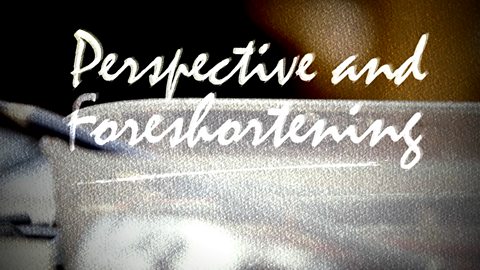
Perspective and foreshortening
Artist Adebanji Alade's advice on foreshortening and perspective when life drawing
Negative Shapes
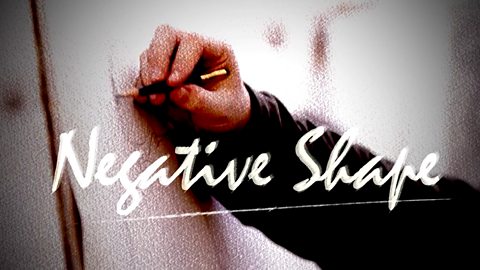
Negative shapes
Artist Adebanji Alade explains how to use negative shapes to help your life drawing
Texture
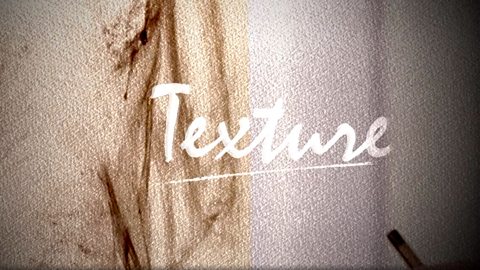
Texture
Artist Adebanji Alade on capturing the fabrics on or near the life model
Colour
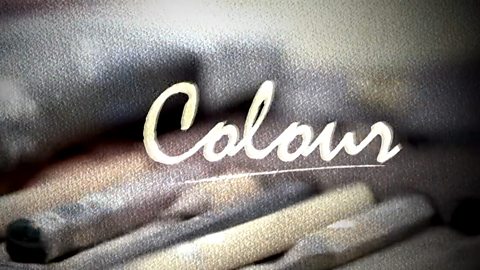
Colour
Artist Adebanji Alade's tips on using colour in your life drawings
Isabel H Langtry, sculptor and Principal of Hampstead School of Art, says she is often asked why do artists draw from the nude.
Shadows and skin texture, the way the limbs move, extend. Every pose or position, reveals a whole new composition.
"The short answer is, the human figure offers all the complexities an artist needs to learn in order to be able to conquer any drawing subject.
"But why? Well, the longer answer goes like this…
"Every time a model makes a move, there's something to learn and work on. Shadows and skin texture, the way the limbs move, extend. Every pose or position, reveals a whole new composition, and another focus for a drawing. A great range of movement is possible, right in front of you, which combined with the anatomical and structural complexity of the body, make particular demands on us when we draw."
Stop, Look and Listen
"The most important thing, teachers will focus on, is the act of looking. If you think this seems obvious, it’s actually very difficult to draw what you are seeing. Our brains are constantly making things up, joining the dots and creating assumptions, as to what we are looking at seeing.
"So, holding the brain back, becomes an important part of the process. Looking for only five continuous minutes, before you begin to draw, can make a real difference to the quality of your work. Let your eye scan the proportions, make comparisons with shapes, measure the proportions with your pencil, come to an understanding about what you are looking at, in the moment.
"Why not work from a photograph? Photographs do not offer the subtle variations that are available when you are drawing directly from life. The vantage points possible when drawing from life that, enable us to grasp the three-dimensional form of the body are not there. The very best photographs can provide lots of lovely surface detail, but not the weight, shift and gesture of the life model.
"And another thing, the group experience of drawing from the life model helps us to learn faster. Training the eye, and responding to what we see, are great fun when we work together."
Life Drawing Live!
-
![]()
大象传媒 Two: Life Drawing Live!
Joe Lycett invites you to take part in the biggest ever live art class with celebrity artists and nude models recreating poses from famous works of art.
-
![]()
大象传媒 Four: Life Drawing Live! Pose Cam
Draw along with 大象传媒 Four's Life Drawing Live! as Pose Cam remains on the models throughout each session. Grab a pencil and paper, and join in.
-
![]()
大象传媒 Arts: Life Drawing Live!
On Sunday 12 September visit bbc.co.uk/arts to join in the class from the comfort of your own home
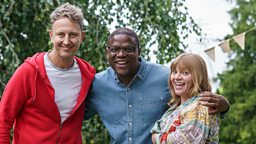
"Many artists draw from the figure in order to draw non-figurative art better. As humans it is only natural that depicting our form should play an important role as subject matter. Built into that is the instinctive emotional response we experience when studying another person, and many artist's use this response in a dramatic, personal way, a chance to develop a personal visual language.
As humans it is only natural that depicting our form should play an important role.
"Is one course enough? Many artists continue going to life drawing class to keep their skills developing, beginner’s benefit from learning and many of us do it for the sheer fun and satisfaction.
"It's definitely good for you, give it a go."
A creative perspective
-
![]()
Tips and ideas on how to get involved with the visual arts
Musings of a life model
A version of this article was originally published on 15 July 2016.

